

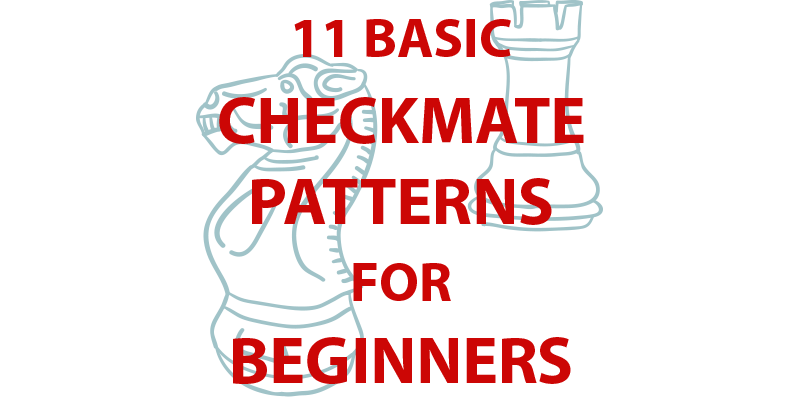
A checkmate pattern is a specific identifiable positioning of pieces that carry out checkmate. You can quickly level up your chess skill by becoming better aware of the most common checkmate patterns. This post offers 11 basic checkmate patterns for beginners.
The Arabian Mate is a checkmate pattern where, with help from the knight’s special powers, the rook delivers mate.
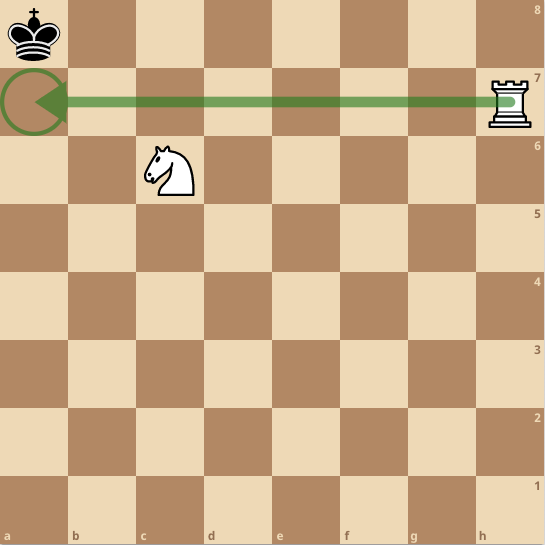
In the Image Above: Notice how the knight simultaneously covers an escape on b8 and protects the checkmating rook on a7.
The Back Rank Mate occurs when the king in stuck behind its own pawns and is delivered by a queen or a rook.
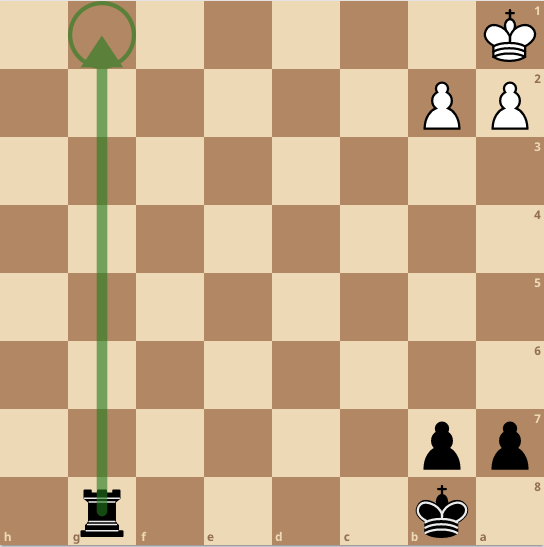
In the Image Above: Make note how after Rg1# the white king is trapped, on the back rank, behind his own pawns.
The Blind Swine Mate checkmate pattern is a great illustration of the power of connected rooks on either the 7th or 2nd ranks.
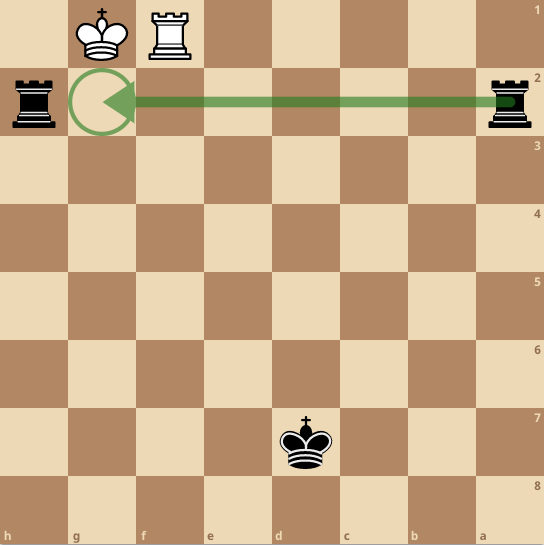
In the Image Above: Rag2# delivers, with assistance from the blocking white rook on f1, checkmate on the castled white king.
The Corner Mate, as the name implies, is a checkmate pattern where the opposing king is trapped in a corner. Usually, a knight delivers the checkmating move.
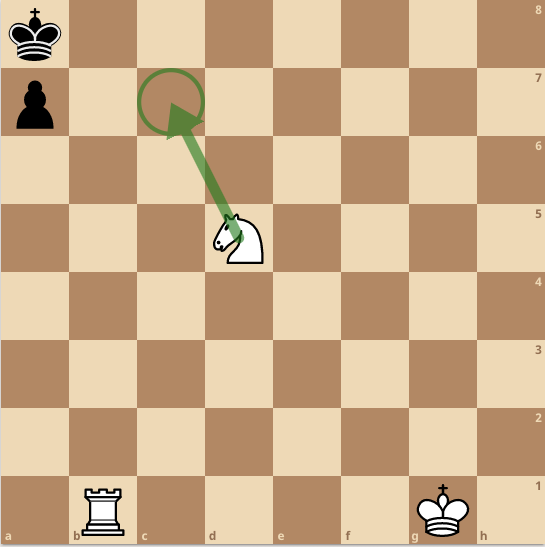
In the Image Above: Notice how the white rook on b1 and black’s own pawn on a7 keeps the black king stuck for, Nc7#, the final blow.
Damiano’s Mate is a checkmate pattern where the queen and either a pawn or a bishop join forces against a castled king.
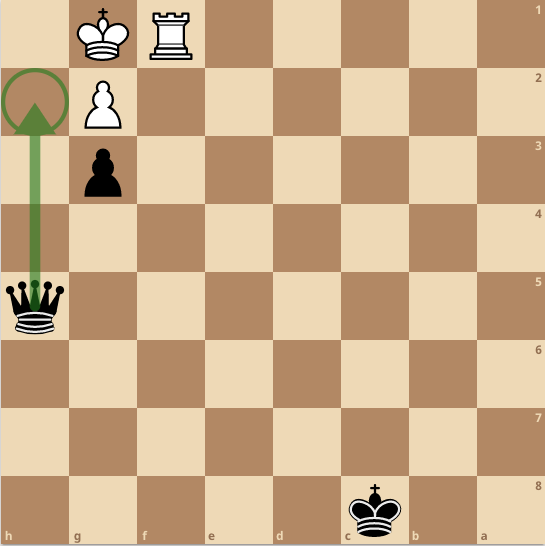
In the Image Above: Observe how the black pawn on g3 prevents a white king escape on f2, while white’s own rook blocks f1. A black bishop on g3, in place of the black pawn, would be a just as devastating.
Fool’s Mate is a checkmate pattern where checkmate is delivered by either a sole bishop or queen along a diagonal.
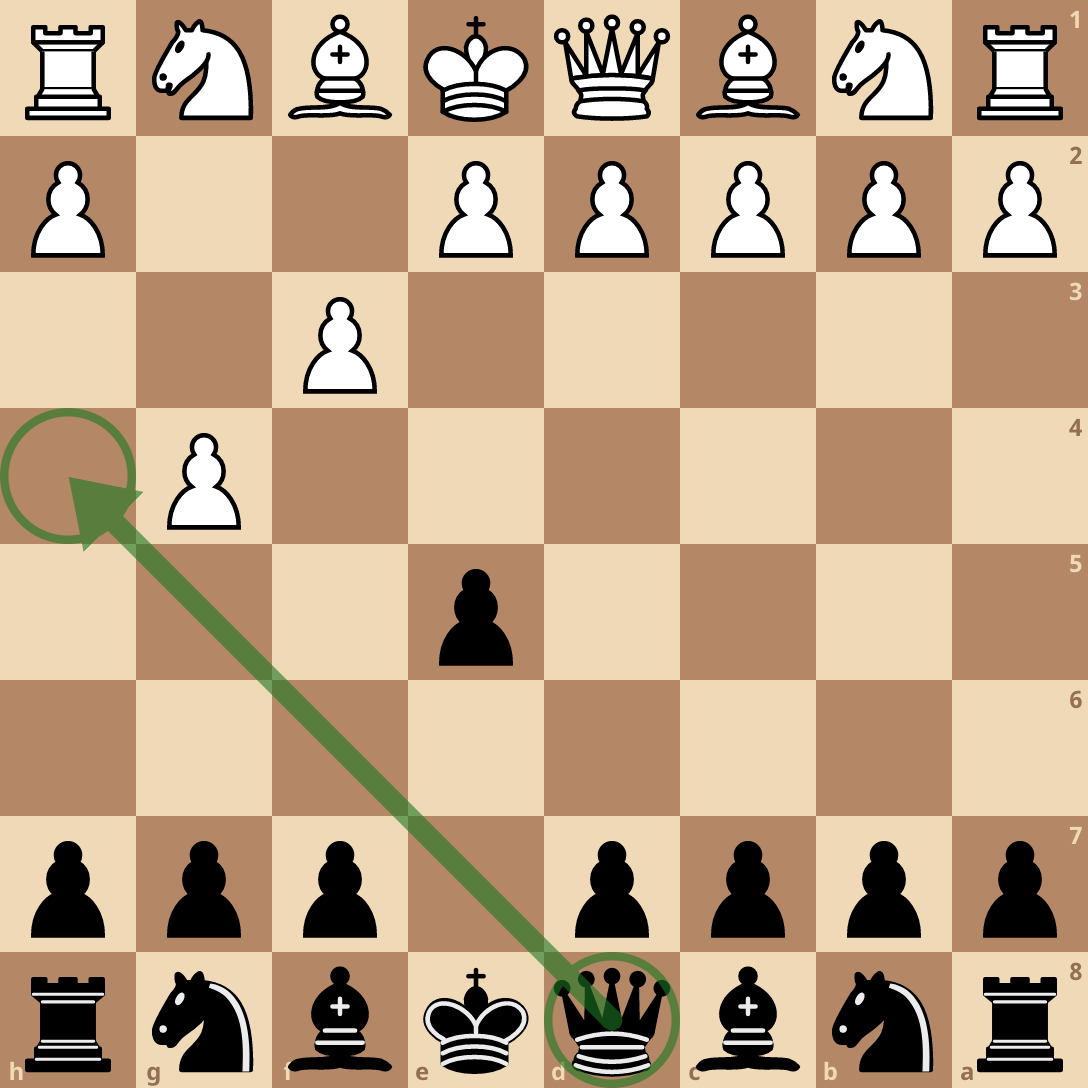
In the Image Above: Notice how the weakened f2 square, due to an ill-advised pawn push, allows Qh4#.
The Lawnmower Mate is checkmate pattern that is executed by either a queen and a rook or 2 rooks. The pieces work together to push the opposing king to the edge of the board before delivering mate.
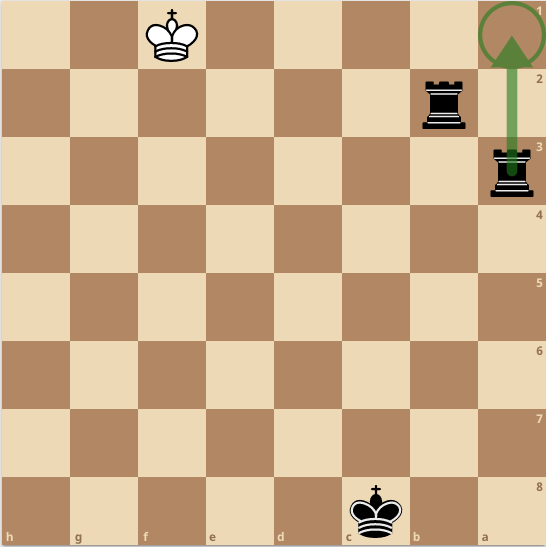
In the Image Above: Notice how the rook on b2 holds the king on the board’s rim for, Ra1#, the final blow. This simple checkmate pattern is very common and is great for beginners to learn.
Lolli’s Mate is a checkmate pattern where the queen and pawn work together, usually against a castled king.
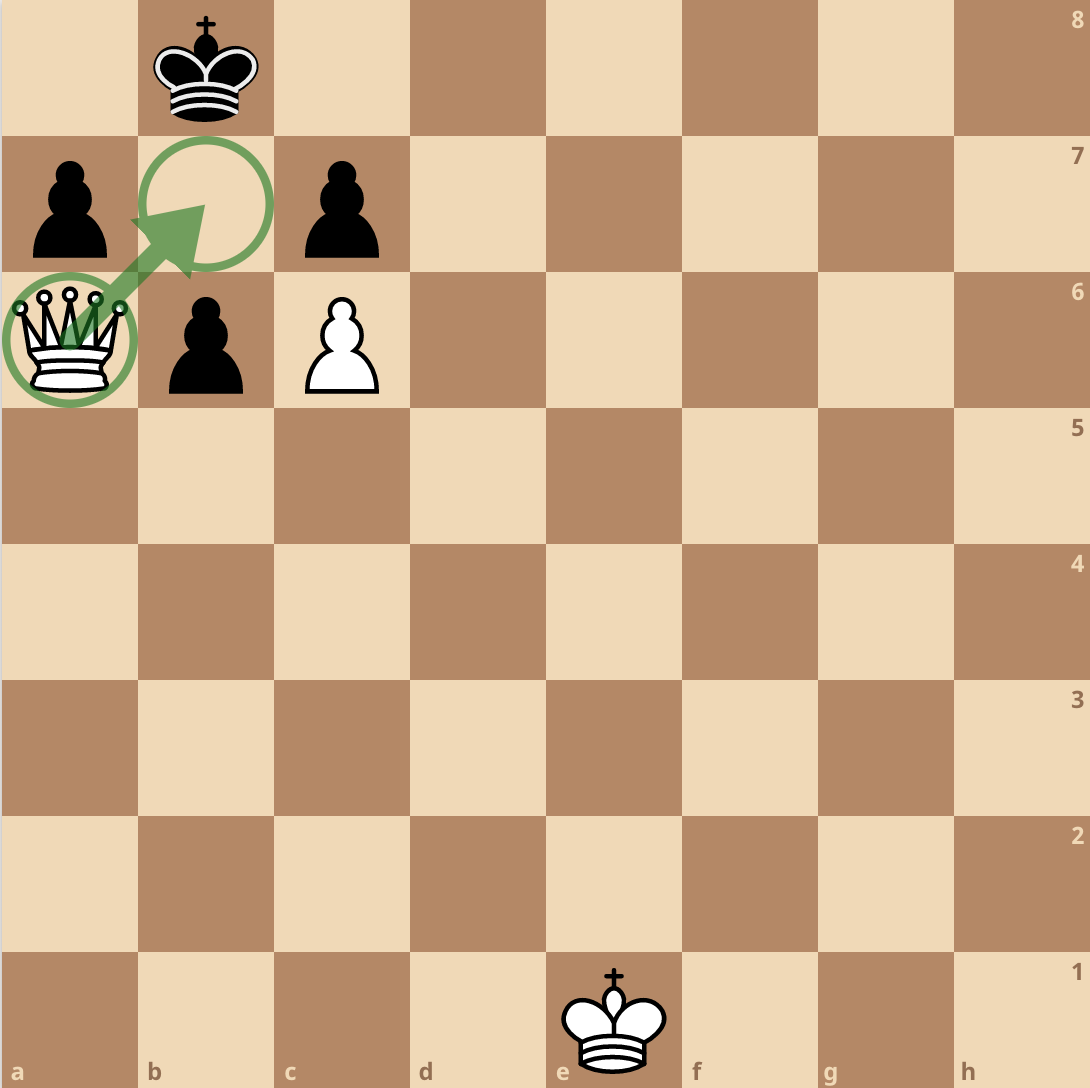
In the Image Above: Make note of how the white pawn on c6 protects b7, enabling the queen to deliver Qb7#.
Morphy’s Mate is a checkmate pattern that is performed through the joint forces of a rook and a bishop.
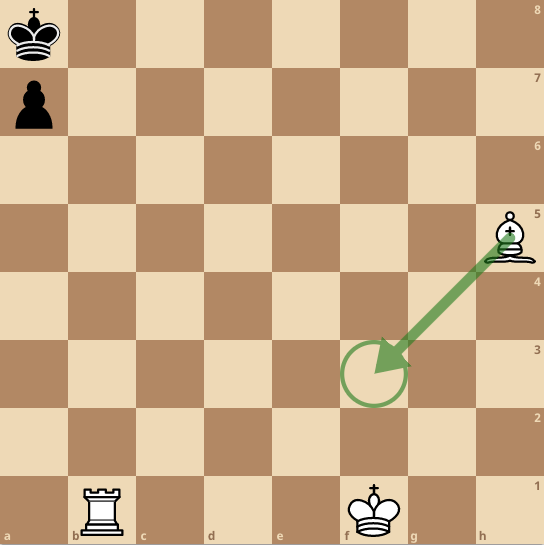
In the Image Above: Observe how the white rook on b1 and black’s own pawn on a7 restricts the black king in the corner for the bishop to provide, Bf3#, the end of the matter.
The Opera Mate is a checkmate pattern executed through the teamwork of the bishop and the rook.
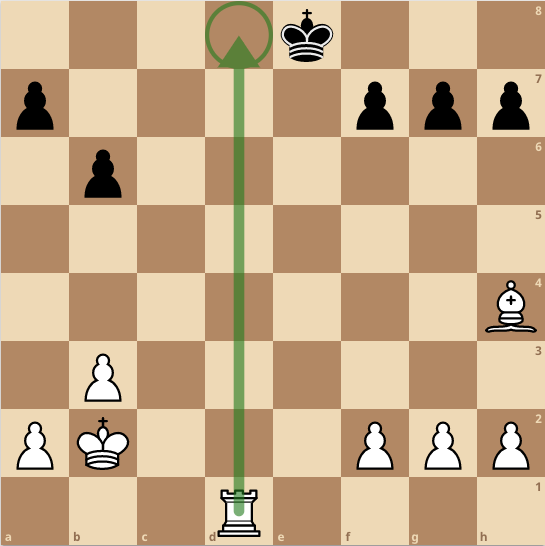
In the Image Above: Make note how the white bishop on h4 controls both e7 and d8, restricting the black king, allowing the rook to provide Rd8#.
This checkmate pattern is named after American Paul Morphy’s famous Opera Game where he allegedly played blindfolded, back to the board while watching an opera, against German noble Karl II, Duke of Brunswick and French aristocrat Comte Isouard de Vauvenargues; who consulted during the game. Check out the full game here, A Night at the Opera.
The Smothered Mate is a checkmate pattern that utilizes the special skills of the knight and can only occur when the opposing king is fully surrounded by his own pieces.
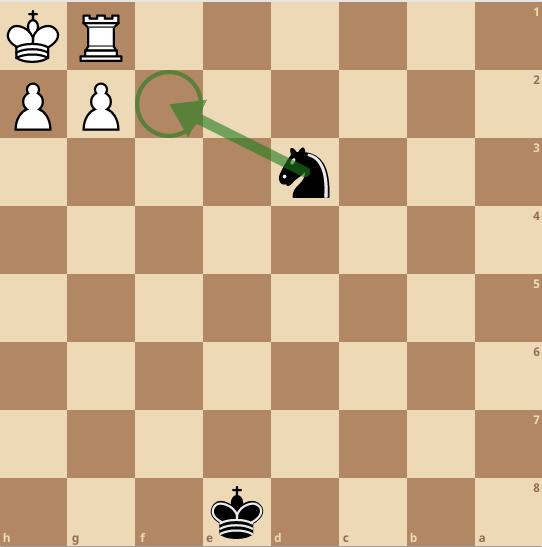
In the Image Above: Notice how, by being fully surrounded by his own pieces, Nf2# takes advantage of the immobile white king.
If chess were an MMA fight checkmate patterns are like the slick submission or the knock out punch. Although setup is necessary, they are quick and deadly. If you wish to more easily identify checkmate patterns in your games, learning them wouldn’t be a horrible idea. It’s known that associating patterns with their names helps in memorization. Moreover, being very familiar with the most common tactical motifs also helps. Check out 5 Easy Chess Tactics for Beginners. Learn these named patterns and use this short list to level up!
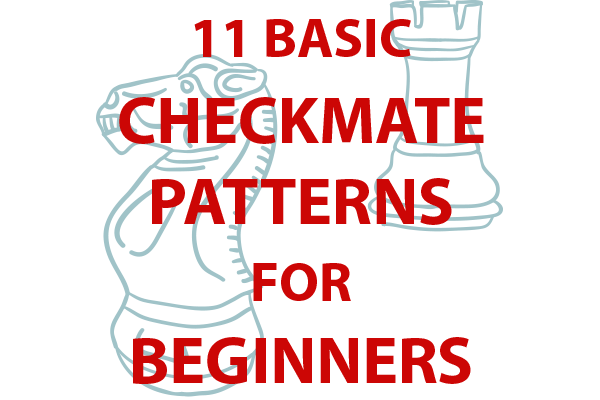 A checkmate pattern is a specific identifiable positioning of pieces...
A checkmate pattern is a specific identifiable positioning of pieces...
 Chess is a game with many approaches to improve. Some...
Chess is a game with many approaches to improve. Some...